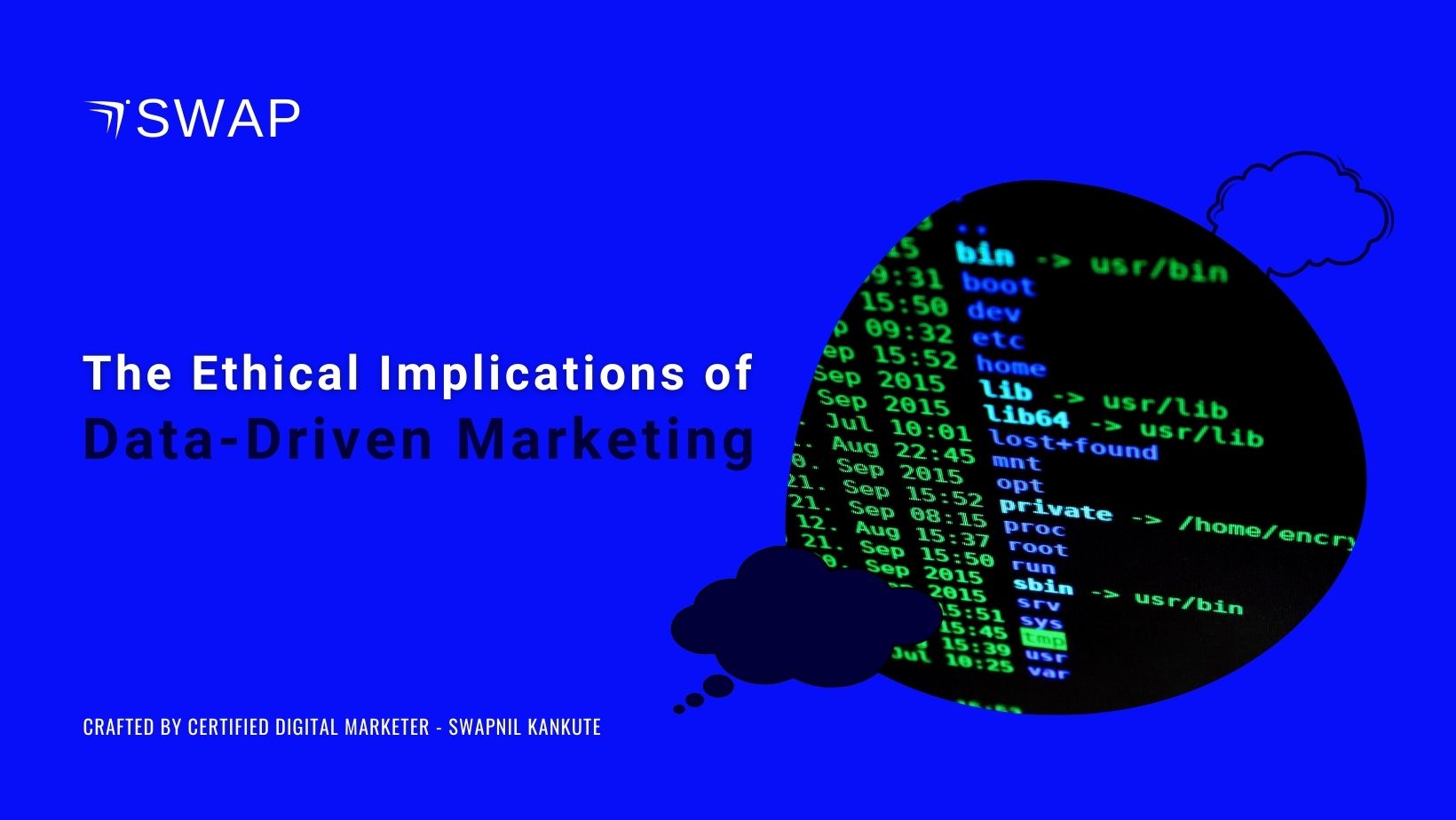Is your data-driven marketing strategy ethical?
As businesses increasingly rely on data to inform their marketing strategies, the ethical implications of data-driven marketing come into sharper focus. I, Swapnil Kankute, a Certified Digital Marketer in India, will explore the ethical considerations businesses must navigate to balance effective marketing with respect for consumer privacy and trust.
Understanding Data-Driven Marketing
Data-driven marketing uses consumer data to tailor marketing efforts. This approach leverages data analytics to gain insights into consumer behavior, preferences, and trends, enabling businesses to create targeted and personalized marketing campaigns.
My Perspective on the Ethical Use of Data
- Respect for Privacy: At the heart of ethical data-driven marketing is respect for consumer privacy. Marketers must ensure they collect, store, and use data in ways that respect individuals’ privacy rights. This involves transparent data collection practices and obtaining explicit consent from consumers.
- Transparency and Honesty: Consumers have a right to know how their data is being used. Transparent communication about data collection and usage builds trust. Businesses should provide clear, accessible privacy policies and offer consumers control over their data.
- Security and Protection: Safeguarding consumer data against breaches and misuse is crucial. Implementing robust security measures to protect data from unauthorized access and cyber threats is a fundamental ethical responsibility.
Addressing Counterarguments
Some might argue that extensive data collection is necessary for effective marketing. However, this should not come at the expense of ethical standards. Prioritizing ethical practices can enhance consumer trust, which in turn can lead to more sustainable business success.
Key Ethical Considerations in Data-Driven Marketing
- Informed Consent: Ensure that consumers are fully informed about what data is being collected, how it will be used, and who it will be shared with. Obtain explicit consent before collecting any data.
- Minimization: Collect only the data that is necessary for the intended purpose. Avoid gathering excessive information that is not relevant to the marketing strategy.
- Data Accuracy: Maintain the accuracy of the data collected to prevent errors and misinformation. Regularly update and verify data to ensure its reliability.
- Fair Use: Use data in ways that do not exploit or manipulate consumers. Avoid practices that could be deemed intrusive or deceptive.
- Compliance with Regulations: Adhere to all relevant data protection laws and regulations, such as GDPR in Europe and CCPA in California. Staying compliant not only avoids legal repercussions but also reinforces ethical standards.
Implementing Ethical Data-Driven Marketing
- Develop Clear Policies: Establish clear data privacy policies and communicate them effectively to consumers. Ensure that all employees understand and adhere to these policies.
- Invest in Security: Implement advanced security measures to protect consumer data. Regularly audit security practices to identify and address vulnerabilities.
- Educate Consumers: Provide consumers with information on how to protect their data and their rights regarding data usage. Empower them to make informed decisions about their data.
- Foster a Culture of Ethics: Encourage ethical behavior within the organization. Provide training on data ethics and make it a core part of the company’s values.
Conclusion
Data-driven marketing offers immense potential for businesses to connect with consumers in meaningful ways. However, it must be conducted ethically to maintain consumer trust and respect privacy.
Final Thoughts: As we navigate the complexities of data-driven marketing, let’s commit to ethical practices that prioritize consumer privacy and transparency. For more insights on responsible digital marketing strategies, visit my website and explore our resources. Together, we can create a marketing landscape that values ethics as much as effectiveness.



